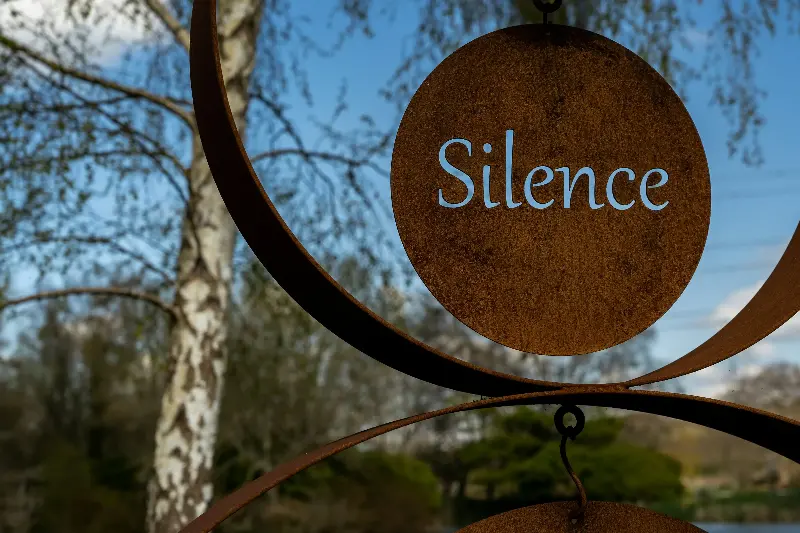Imagine being alone in a room so quiet that even the beating of your own heart becomes thunderous. For many, the thought of absolute silence conjures feelings of calm and serenity. Yet, step into a world truly devoid of sound, and the experience quickly turns unsettling, even terrifying. The paradox of silence is a fascinating dive into how our minds interpret the absence of sound and why most people find it so hard to bear.

What Absolute Silence Really Means
Silence is a concept everyone thinks they understand. In everyday life, silence is the quiet between conversations, the hush of a library, or the peace of a deserted forest. But absolute silence—where not even the faintest whisper, echo, or background hum exists—is both rare and unnatural for humans. Such silence is typically achieved in specially designed chambers called anechoic chambers.
Anechoic chambers are built to absorb all echoes and block external noise, often used for scientific experiments on sound. In these spaces, noise levels can reach negative decibels, far quieter than anything you’d encounter even in the calmest natural settings. Here, without external sound, the human ear becomes hypersensitive, picking up the internal sounds of one’s own body: the creak of joints, the rush of blood, the gurgle of digestion. Some people even report hearing their own eyeballs move.
The Science Of Sensory Deprivation
The human brain craves sensory input. It’s constantly bombarded with information from sight, hearing, smell, touch, and taste. When one of these inputs—especially hearing—is almost entirely removed, the brain is forced to compensate.
Noisy environments force our brains to filter and interpret countless sounds, a process we usually take for granted. When placed in a setting of absolute silence, there is suddenly nothing for the auditory system to process from the outside world. The brain, rather than simply shutting down its hearing circuits, begins to amplify any signals it can detect, even the faintest internal ones. In extreme silence, some people begin experiencing auditory hallucinations—hearing sounds that aren’t there at all. For example, in labs, volunteers have reported phantom music, phantom footsteps, or unsettling whispers.
Psychologists believe this is related to how deeply our minds rely on external feedback to organize our sense of reality and self. When expected sensory cues are absent, the brain sometimes fills in the gaps, leading to mysterious—and often disquieting—perceptions.

Why Most People Can’t Handle True Silence
For most people, entering an anechoic chamber quickly becomes uncomfortable. The Guinness World Record for the time someone spent in the world’s quietest room is less than an hour. Participants typically ask to be let out within 30 minutes.
One of the reasons it's so difficult is that absolute silence deprives you of the comforting, grounding effects of ambient noise. Everyday sounds—traffic outside, the hum of a refrigerator, birds singing—help orient you in time and space. In their absence, a strange and disorienting sensation sets in. Many people report losing their sense of balance because we unconsciously use subtle sounds to navigate and stay steady.
On top of that, the silence removes distractions from our own thoughts. For many, this means that worries, anxieties, and memories quickly move front and center. Some experimenters have described it as confronting "the noise of your own mind," which can be surprisingly overwhelming.
The Surprising Benefits And Uses Of Extreme Silence
Despite its unnerving effects, scientists and researchers rely on anechoic chambers and other silent environments to better understand human perception and the limits of sensory processing. Testing new audio tech, studying sleep, or improving hearing aids all demand pure silence.
There are therapeutic applications, too. Sensory deprivation therapies—often involving floating in soundproof tanks—can help some people relax deeply, reduce anxiety, or achieve meditative states. However, these experiences are carefully managed and usually don’t last long enough to trigger the negative effects reported in longer sessions.
Additionally, understanding our reactions to silence reveals a lot about our evolutionary origins. Humans evolved in environments rich with sound; rustling leaves, animal calls, even distant storms all signaled important information about the world. Our bodies and brains may be hardwired to interpret total silence as a clue that something is wrong—a warning sign, rather than a comfort.
Famous Anecdotes And Cultural Reactions
Art, music, and literature often explore the power of silence. Consider composer John Cage’s famous “4’33”,” a composition entirely without deliberate sound, challenging audiences to confront the ordinary noises around them. In more dramatic scenes, films often employ silence to heighten tension, suggesting that something thrilling or terrifying is about to happen.
Interestingly, not all cultures view silence the same way. Some spiritual practices encourage silent meditation as a path to enlightenment, suggesting that it’s possible to find peace—or even joy—in stillness, given the right mindset and environment.
Ultimately, the reality of absolute silence is much more complex than tranquil solitude. For most people, the effects are surprisingly profound, revealing the intricate ways our minds and bodies depend on sound—not just for communication, but for a sense of presence and peace. The next time you find yourself alone in a quiet moment, remember: a little silence can be golden, but too much just might be overwhelming.
